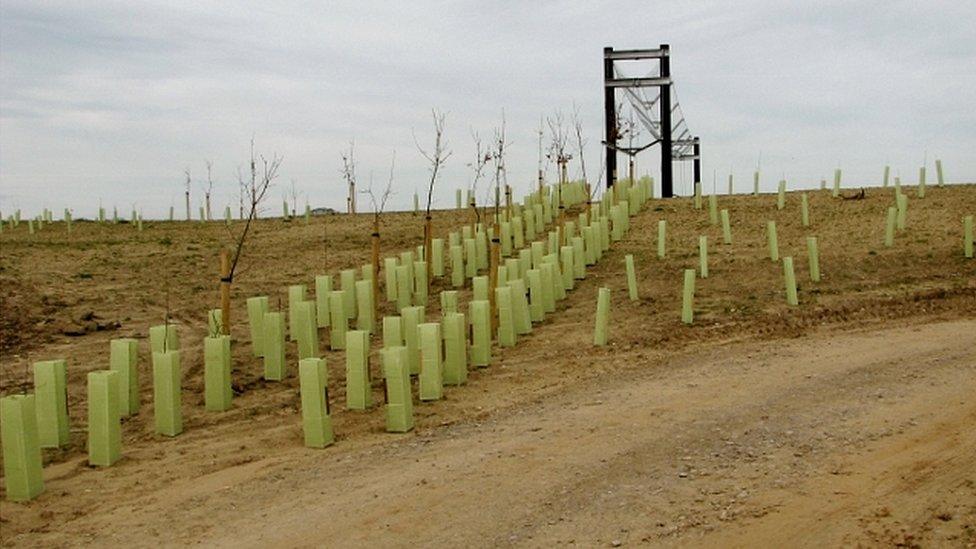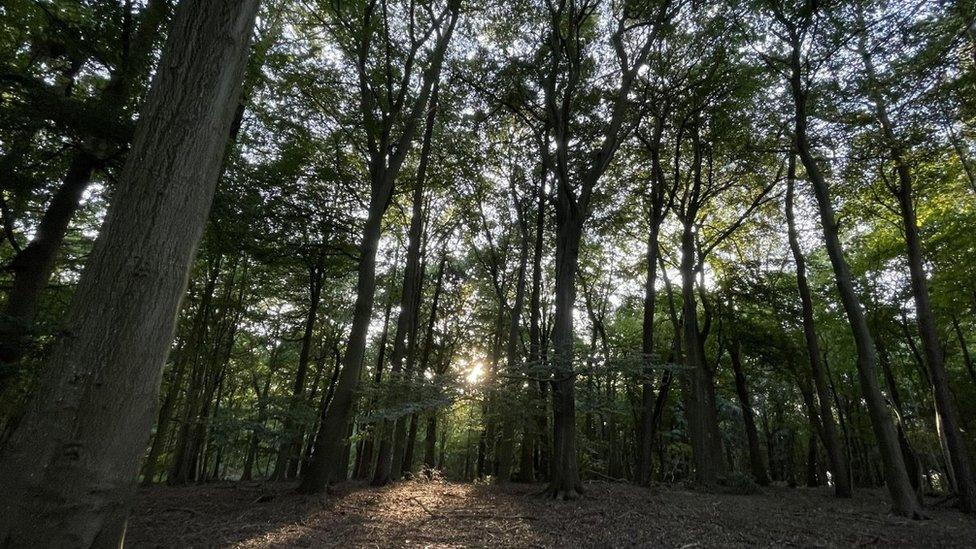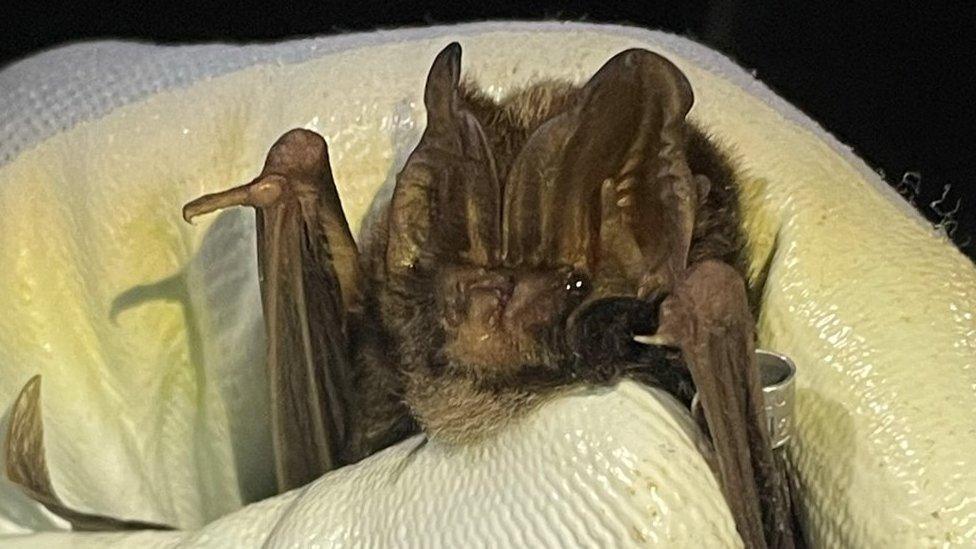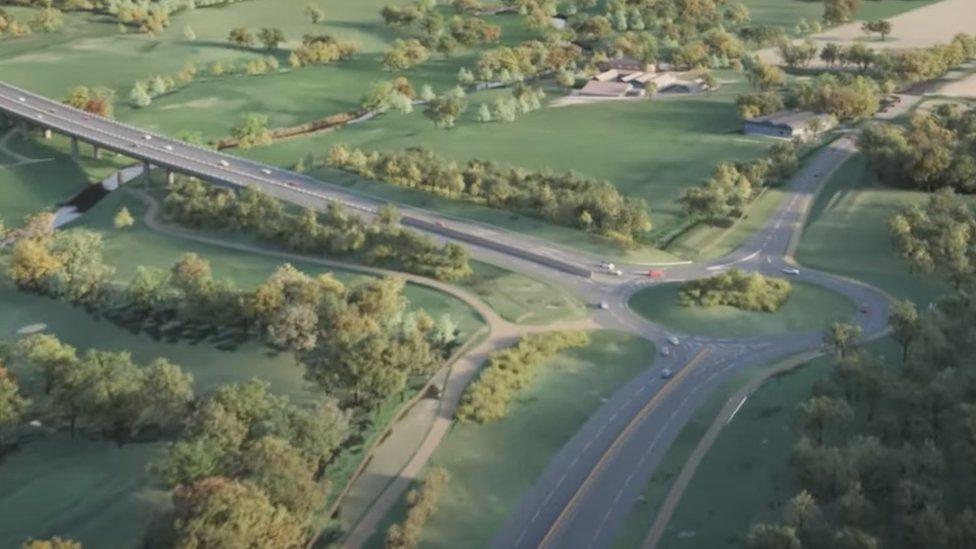Norfolk council 'was warned' about dying roadside trees
- Published

The saplings were planted as part of the re-landscaping at the new link road
Thousands of trees planted at a new road system have been "left to die", Green Party politicians have claimed.
The Greens on Norfolk County Council (NCC) said the local authority was warned about the saplings not being maintained properly at the Northern Distributor Road (NDR) near Norwich.
NCC planted 30,000 trees six years ago to replace the 6,000 that were dug up.
The council confirmed 25% of the trees had failed but claimed this was in line with Forestry Commission guidance.
The Greens said its own Freedom of Information request to the council revealed the trees were not planted properly.

Jamie Osborn said the council could have been more honest about the trees
"[NCC] were repeatedly warned about this, about a lack of watering, a lack of mulching, fairly basic things for maintenance that they just didn't carry out," said Green councillor Jamie Osborn.
Mr Osborn said while he understood it was difficult to water trees along a busy road, the council "should have been honest about that from the very start".
"[Trees] mean we are at less risk to wildfires and overheating, less risk from flooding because trees retain water," he said.
"They also provide space for insects and for birds, for pollinators, vital for food supplies across the county."

Trees in the Ringland area of the Wensum Valley, near Norwich, are home to numerous bat colonies, and face being cut to create a road link
However, Helen Baczkowska, who monitors bat colonies near road developments for the Norfolk Wildlife Trust, said planting saplings on the county's dry soil during hot weather was difficult to do.
"Should we be a little bit bolder and say, actually, what we might do is let some areas regenerate naturally?" said Ms Baczkowska.
"Seeds will come in naturally and they'll be much more resilient."
Norfolk County Council said: "The plants that have been lost have either already been replaced, or will be replaced in the next planting season.
"The overall project has seen significant investment in natural habitats with 78% of the project's land used for either planting area, grassland or lagoons.
"The ecological area at Rackheath, provided as part of the project, has been awarded County Wildlife Site status."

Follow East of England news on Facebook, external, Instagram, external and X, external. Got a story? Email eastofenglandnews@bbc.co.uk, external or WhatsApp us on 0800 169 1830
Related topics
- Published14 August 2023

- Published8 August 2023

- Published21 April 2023
